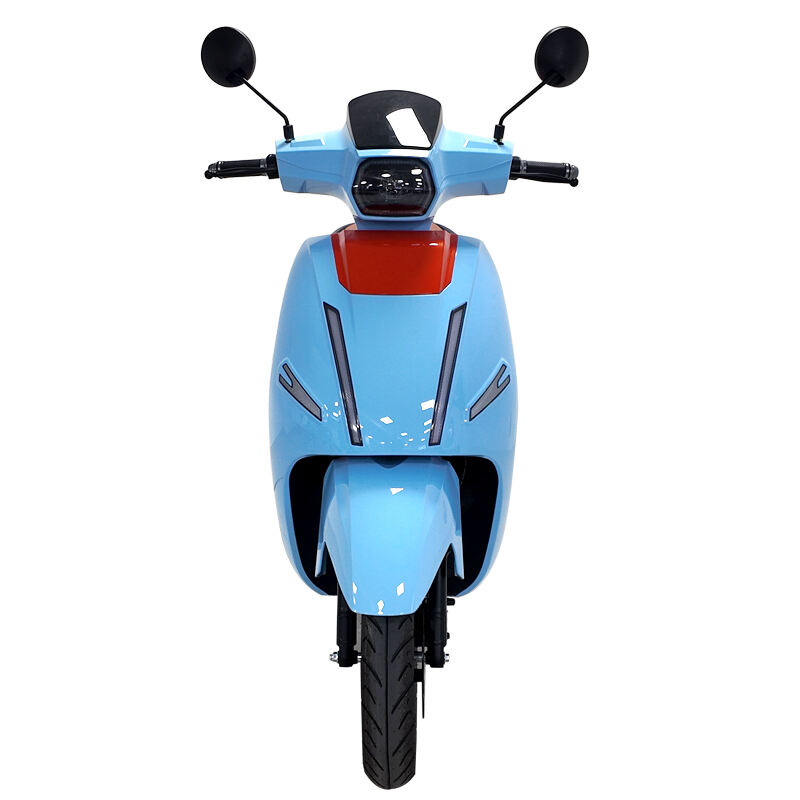Эволюция городской мобильности через электроскутеры
Городская транспортная система претерпевает значительные изменения, электроскутеры становятся ключевым элементом современных решений для передвижения. По мере того как города по всему миру сталкиваются с проблемами загруженности и экологическими проблемами, электроскутеры превратились из новинок в неотъемлемую часть городских транспортных сетей. Этот переход означает не просто моду — это фундаментальное изменение способов, которыми люди пользуются для ежедневных поездок и путешествий на короткие расстояния.
Быстрое распространение электрические скутеры стало причиной инноваций во многих областях — от улучшенных технологий аккумуляторов до повышенных мер безопасности. Глядя в будущее, индустрия находится на пороге нескольких прорывных разработок, которые обещают перевернуть личную транспортировку и изменить облик наших городов.
Технологические достижения, определяющие будущее
Инновации в аккумуляторных технологиях и увеличение запаса хода
Следующее поколение электрические скутеры должна получить значительные преимущества благодаря новым достижениям в области аккумуляторных технологий. Производители активно инвестируют в разработку высокопроизводительных аккумуляторов, обеспечивающих увеличенный запас хода без излишнего веса. Новые составы литий-ионных аккумуляторов и интеллектуальные системы управления батареями расширяют границы возможного, и теперь некоторые модели способны проезжать до 40 миль на одном заряде.
Умные решения для зарядки также становятся более совершенными, с возможностью быстрой зарядки, которая позволяет восстановить уровень заряда батареи до 80% менее чем за 30 минут. Это улучшение эффективности зарядки решает одну из главных проблем пользователей электроскутеров и делает эти транспортные средства более практичными для повседневного использования.
Умная интеграция и связь
Современные электроскутеры становятся все более подключенными устройствами, оснащенными встроенным GPS-трекингом, интеграцией со смартфонами и возможностью диагностики в реальном времени. Эти умные функции позволяют водителям отслеживать производительность своего скутера, контролировать потребность в техническом обслуживании и даже находить свое транспортное средство с помощью мобильных приложений. Интеграция технологий интернета вещей создает более плавный и удобный пользовательский интерфейс, а также предоставляет ценную информацию как пользователям, так и производителям.
Расширенная подключаемость также обеспечивает новые функции безопасности, такие как дистанционные замки и противоугонные системы, которые могут уведомлять владельцев о несанкционированном перемещении. Эти инновации делают электросамокаты более привлекательными для потенциальных покупателей, которые ценят безопасность и удобство.
Инновации в области безопасности и дизайна
Улучшенные средства безопасности
Безопасность остается приоритетной задачей при разработке электросамокатов. Производители внедряют передовые тормозные системы, включая рекуперативное торможение и двойные дисковые тормоза, чтобы обеспечить лучшую тормозную мощность и контроль. Системы светодиодного освещения становятся более совершенными, некоторые модели оснащены автоматической регулировкой яркости и решениями для 360-градусной видимости.
Улучшения устойчивости за счет переработанных платформ палубы и усовершенствованных подвесных систем делают электросамокаты более комфортными и безопасными в управлении, особенно на неровных городских поверхностях. Эти достижения играют ключевую роль в решении проблем безопасности и способствуют более широкому внедрению среди различных возрастных групп.
Эргономичный дизайн Эволюция
Следующее поколение электрических самокатов предлагает улучшенные эргономичные конструкции, которые соответствуют разнообразным потребностям пользователей. Регулируемые рукоятки, более широкие платформы и возможность настройки положения при езде становятся стандартными функциями. Производители также экспериментируют с конструкциями, которые можно сложить для удобства хранения и транспортировки, не нарушая при этом структурную целостность.
Сопротивление погодным условиям — еще одна область, в которой были достигнуты значительные улучшения. В новых моделях используются более эффективные системы защиты от воды и повышенной прочности. Благодаря этим усовершенствованиям электрические самокаты стали более практичными в использовании круглый год в различных климатических условиях.
Влияние на окружающую среду и устойчивость
Экологически чистые производственные процессы
Все большее внимание в индустрии электрических самокатов уделяется устойчивым производственным практикам. Компании используют переработанные материалы, внедряют энергоэффективные производственные процессы и разрабатывают программы утилизации батарей и компонентов по завершении срока службы. Эта приверженность устойчивому развитию выходит за рамки нулевых выбросов, обеспечиваемых самими транспортными средствами.
Некоторые производители исследуют инновационные материалы, такие как биоразлагаемые пластики и переработанные металлы, устанавливая новые стандарты экологической ответственности в отрасли. Эти инициативы имеют ключевое значение для сохранения экологичного имиджа электросамокатов как средства транспорта.
Интеграция в городскую среду и инфраструктура
Города адаптируют свою инфраструктуру, чтобы лучше принимать электрические самокаты, выделяя специализированные полосы движения, устанавливая станции зарядки и организуя парковочные решения. Такая интеграция имеет решающее значение для устойчивого роста экосистемы электрических самокатов и их роли в сокращении выбросов углерода в городах.
Появляются партнерства между государственными и частными организациями для создания интеллектуальных сетей зарядных станций и сервисных центров, что делает электрические самокаты более доступными и удобными в повседневном использовании. Эти разработки необходимы для утверждения электрических самокатов как жизнеспособной альтернативы традиционным видам транспорта.

Часто задаваемые вопросы
Какое расстояние могут проезжать самые современные электросамокаты на одном заряде?
Современные модели электросамокатов могут проезжать от 40 до 65 км на одном заряде в зависимости от таких факторов, как рельеф местности, вес райдера и погодные условия. Модели премиум-класса с передовыми батареями могут превосходить указанные показатели.
Какие функции безопасности стоит учитывать при выборе современного электросамоката?
К числу важных функций безопасности относятся двойные тормозные системы, светодиодное освещение с автоматической регулировкой яркости, надежная подвеска, пневматические шины и интеллектуальные функции, такие как GPS-навигация и противоугонная система. Некоторые модели также оснащены улучшенными системами стабилизации и экстренного торможения.
Как электросамокаты становятся более экологичными?
Электроскутеры становятся более экологичными благодаря устойчивым производственным процессам, использованию переработанных материалов, улучшенным программам утилизации аккумуляторов и увеличению срока службы продукции. Кроме того, производители внедряют энергоэффективные методы производства и разрабатывают биоразлагаемые компоненты, где это возможно.

